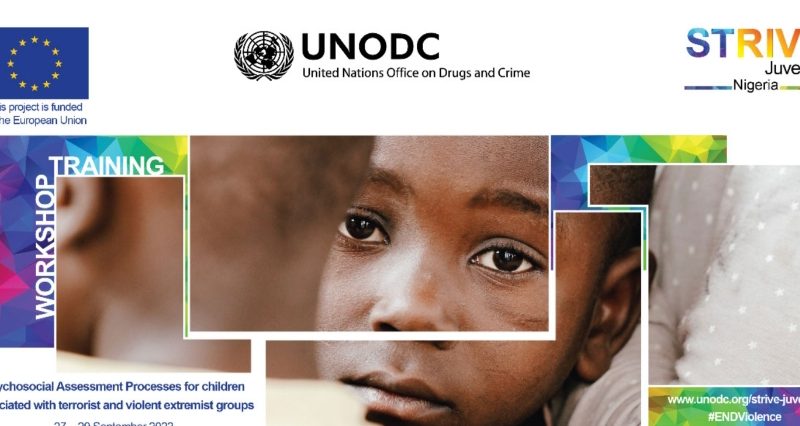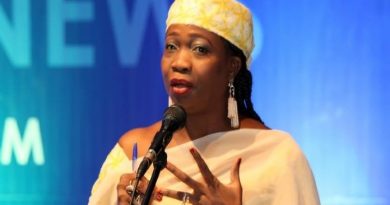UNODC Organises Workshop on Psychosocial Assessment Processes for Children Associated with Terrorist and Violent Extremist Groups
State Correspondent
To address the phenomenon of child recruitment by terrorist and violent extremist groups in Nigeria is an immense challenge, not least because stakeholders who share responsibility for the treatment of affected children are operating in a context of humanitarian crisis and ongoing conflict with a regional dimension. Boko Haram factions have abducted, recruited and exploited thousands of children in the country since the group began attacks around the Lake Chad Basin in 2009. The United Nations Report of the Secretary-General on Children and Armed Conflict in Nigeria (2020) verified that 1,385 children had been recruited and used by these groups between 2017 and 2019, although access constraints in monitoring mean that this number is likely to be far higher in reality.
Member States face significant challenges when protecting children from the various forms of victimization perpetrated by terrorist and violent extremist groups; and rehabilitating and reintegrating them back into their communities after release or demobilization. UNODC and the Government of Nigeria have worked together to address this complex phenomenon since 2019, including through the implementation of the European Union funded project STRIVE Juvenile, which focuses on research; legal and policy advice; capacity building; and participation of children and their communities.
The STRIVE Juvenile team, in collaboration with the Office of the National Security Adviser (ONSA) organized a 3-day training for qualified professionals on the Psychosocial Assessment Processes for Children associated with terrorist and violent extremist groups in Abuja from 27 to 29 September 2022. In his opening remarks, Mr. Dennis Ozioko, representing ONSA, stressed the importance of individual assessment processes for effective rehabilitation and reintegration noting that they are “key to determining the best interventions for each individual child, joining forces and implementing multi- disciplinary approaches”.
The workshop was designed to explore the Nigerian context in relation to the psychosocial assessment of children associated with terrorism-related offences – with a focus on rehabilitation and reintegration
– and to highlight promising practices that support protection throughout involvement in justice proceedings. Practitioners and policy-makers from different agencies at the federal and state level, as well as representatives of civil society organizations – most of whom are directly involved in psychosocial assessments of children associated with terrorist groups – came together during this workshop which was designed to foster multidisciplinary and multi-stakeholder cooperation.
The workshop was a unique opportunity for professionals to discuss the challenges they face in relation to the provision of rehabilitation and reintegration services. Participants were supported to look into the positive and negative impact that professional interventions and decisions in this context can have on the future and development of these children; and to understand that recommendations and conclusions in psychosocial assessment reports must be age and gender sensitive; aligned with children’s needs; and to understand that recommendations and conclusions in psychosocial assessment reports must be age and gender sensitive; aligned with children’s needs; and supportive of the upholding of dignity. Particular emphasis was given to the question of how to prepare, conduct, coordinate and use psychosocial assessment to respond to an essential duty, that of protecting society by meeting the needs of every child.




